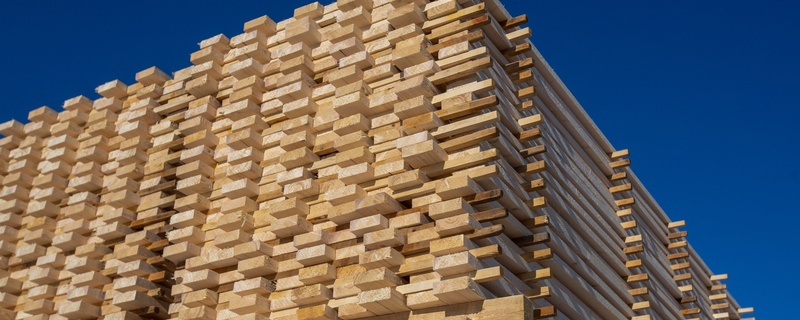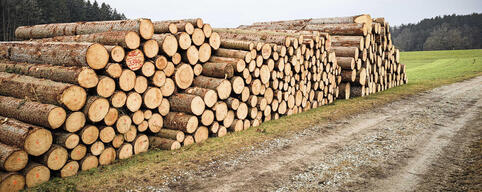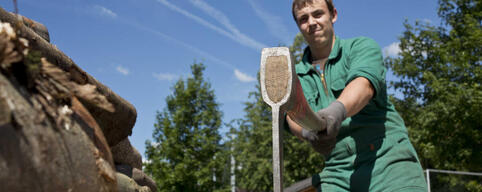

The Austrian timber industry demonstrated resilience in 2023 despite facing significant challenges. Herbert Jöbstl, Chairman of the Austrian Wood Industry Association, noted that the ongoing weakness in the construction sector has significantly impacted the timber industry. In 2023, the Association's 1,289 member companies reported sales totaling 9.8 billion euros, an 18.5% decrease from the previous year.
"The trend of declining production is evident across Europe and globally. Despite the recession, Austria's timber industry remains relatively well-positioned," stated Jöbstl. However, export figures also showed a decline, with the foreign trade surplus dropping 14% to 1.5 billion euros. "Our companies have maintained a high level of performance in international markets. With appropriate economic policies, the timber industry can continue to thrive," Jöbstl emphasized.
Despite the economic difficulties, employment in the timber industry has remained relatively stable. "Our companies have largely avoided significant staff reductions," said Dr. Erlfried Taurer, Deputy Chairman of the Association. In 2023, the industry employed around 27,400 people, a reduction of approximately 720 jobs from the previous year. The number of trainees increased slightly from 819 in 2022 to 826 in 2023. "Our companies are committed to retaining skilled workers despite the challenging conditions. However, this situation is not sustainable indefinitely. Companies need to start making profits again and utilize their capacities efficiently," Taurer warned.
The persistent weakness in the construction industry has led the German Wood Industry Association to call for measures to stimulate construction activity. "We do not expect a short-term increase in construction activity. Building permits are still declining, and projects that are not financed and approved now will not be built later," said Dr. Andreas Ludwig, Deputy Chairman of the Association. The federal government's recent housing package is seen as a positive step by the timber industry. "The housing package is a move in the right direction. However, transitional measures such as tax deferrals and installment payments are necessary until orders reach our companies," Ludwig suggested. He also proposed additional incentives, like the refund of VAT for construction services and materials, and the suspension of the Ordinance on Sustainable Lending Standards for Residential Real Estate Financing (KIM-VO), to prevent further restrictions on private construction financing amid high interest rates and stagnant real estate prices.
"If the construction sector remains weak for an extended period, we risk losing skilled workers and production capacities permanently. A resurgence in demand without sufficient production capacity could lead to supply bottlenecks and rising material prices," Ludwig warned. "We advocate for countercyclical investment incentives to sustain domestic value creation and jobs while creating the necessary living space."
The discussion around forests and timber is expected to be a prominent issue in the upcoming legislative period of the European Parliament, particularly concerning the Green Deal. "We anticipate that the new EU Parliament and Commission will consider the wood value chain in the Green Deal, rather than imposing regulations without our input," Jöbstl demanded.



